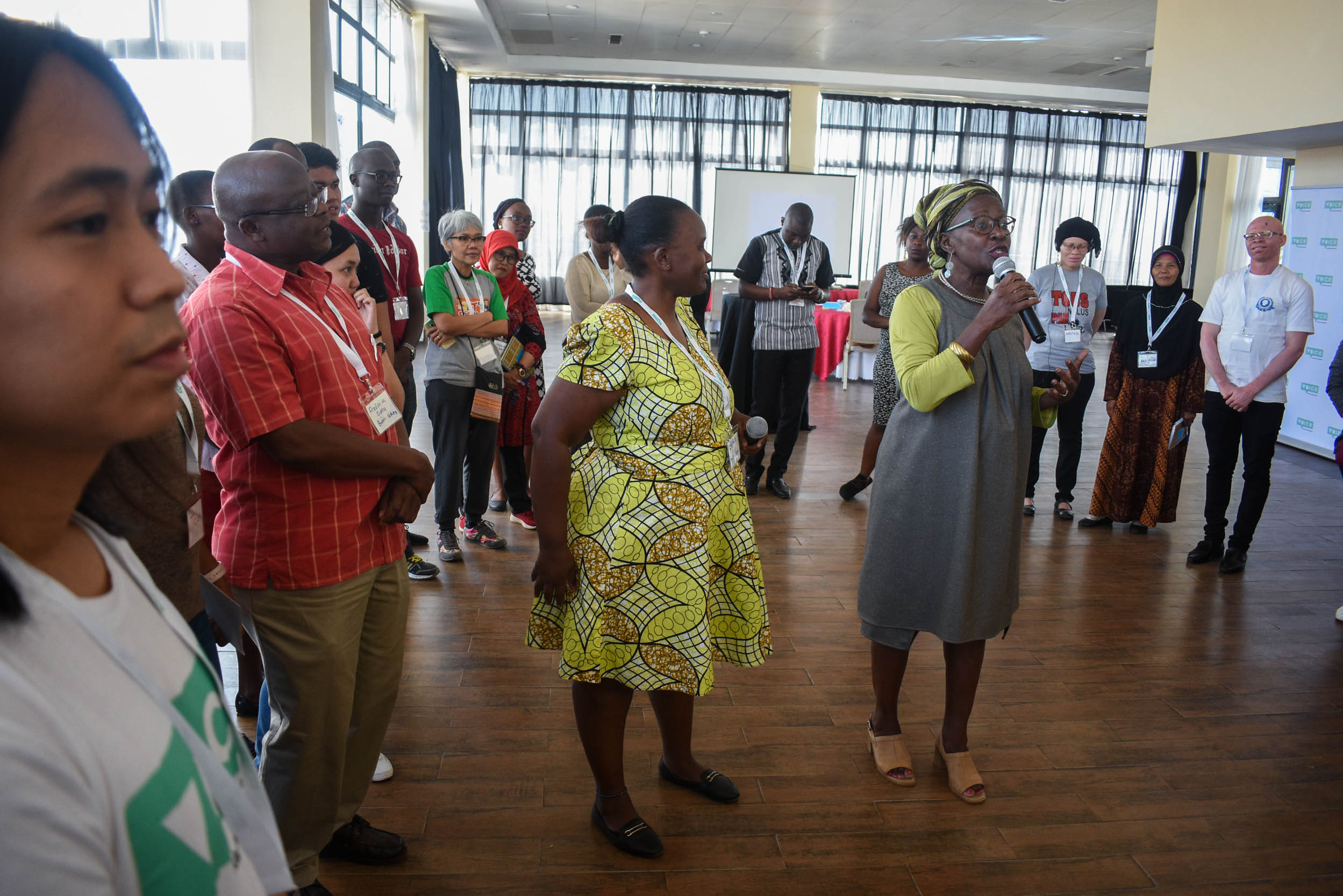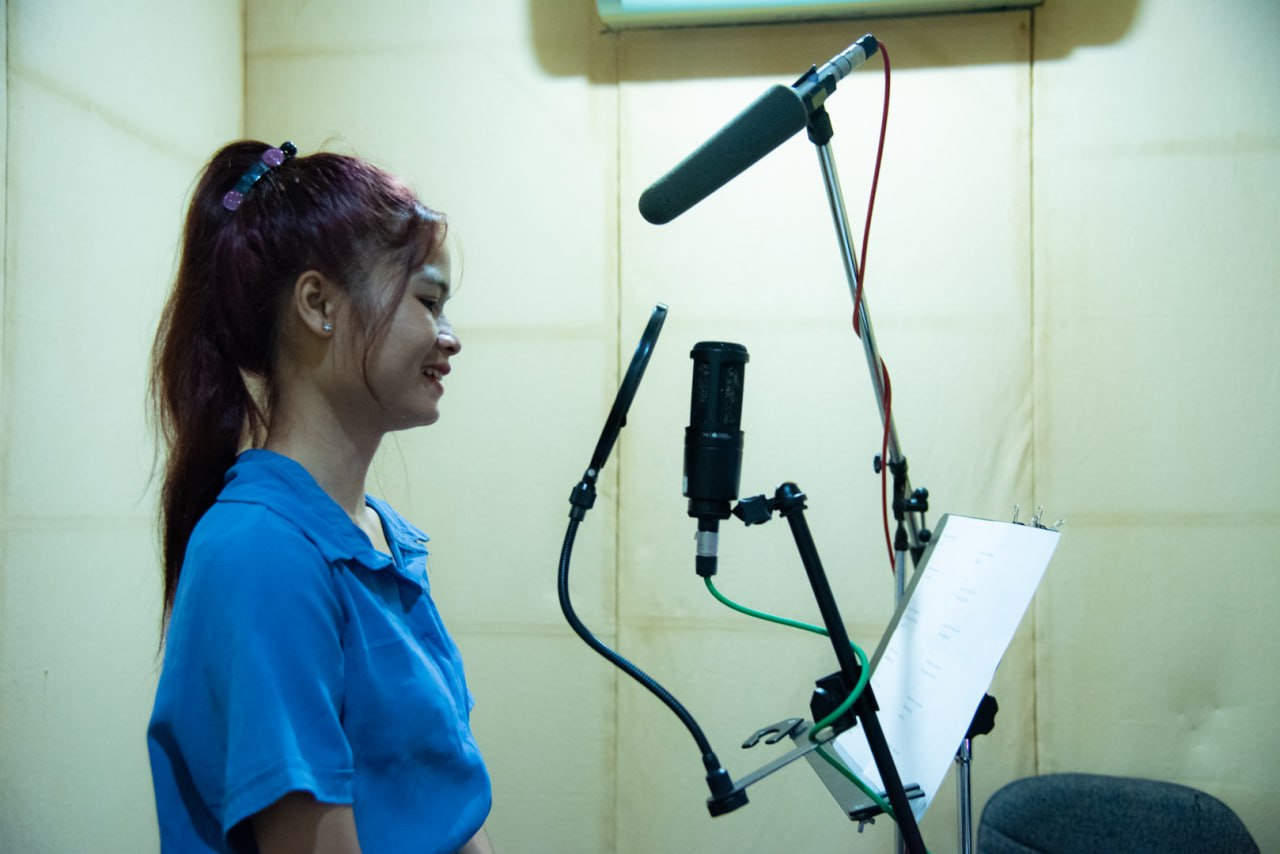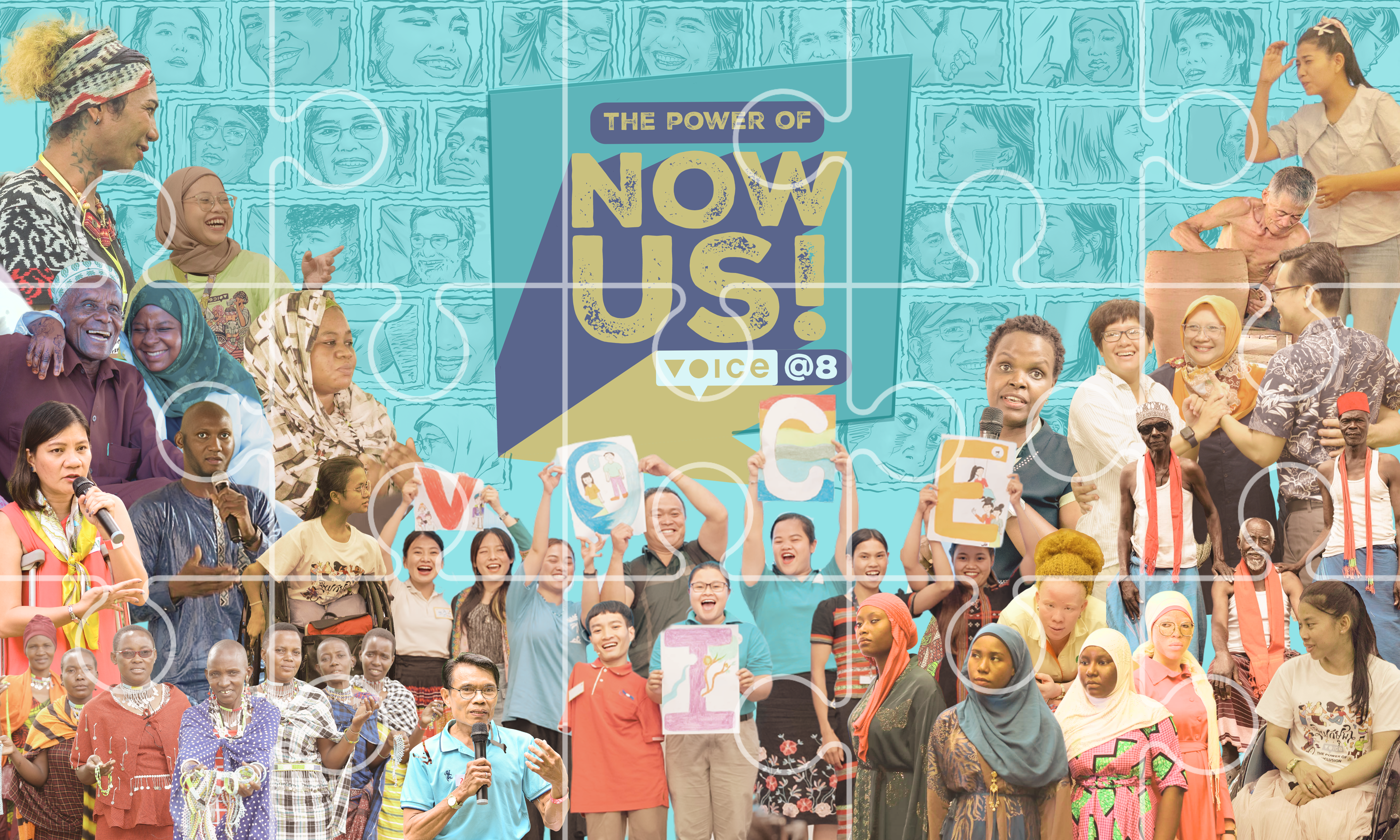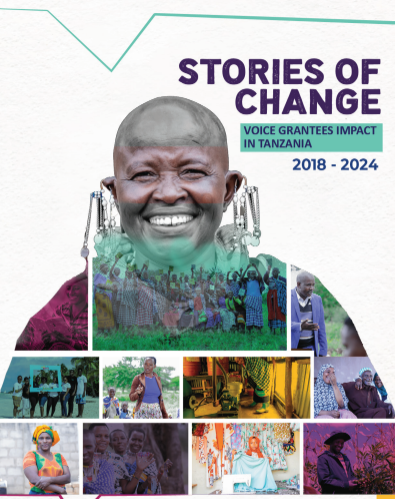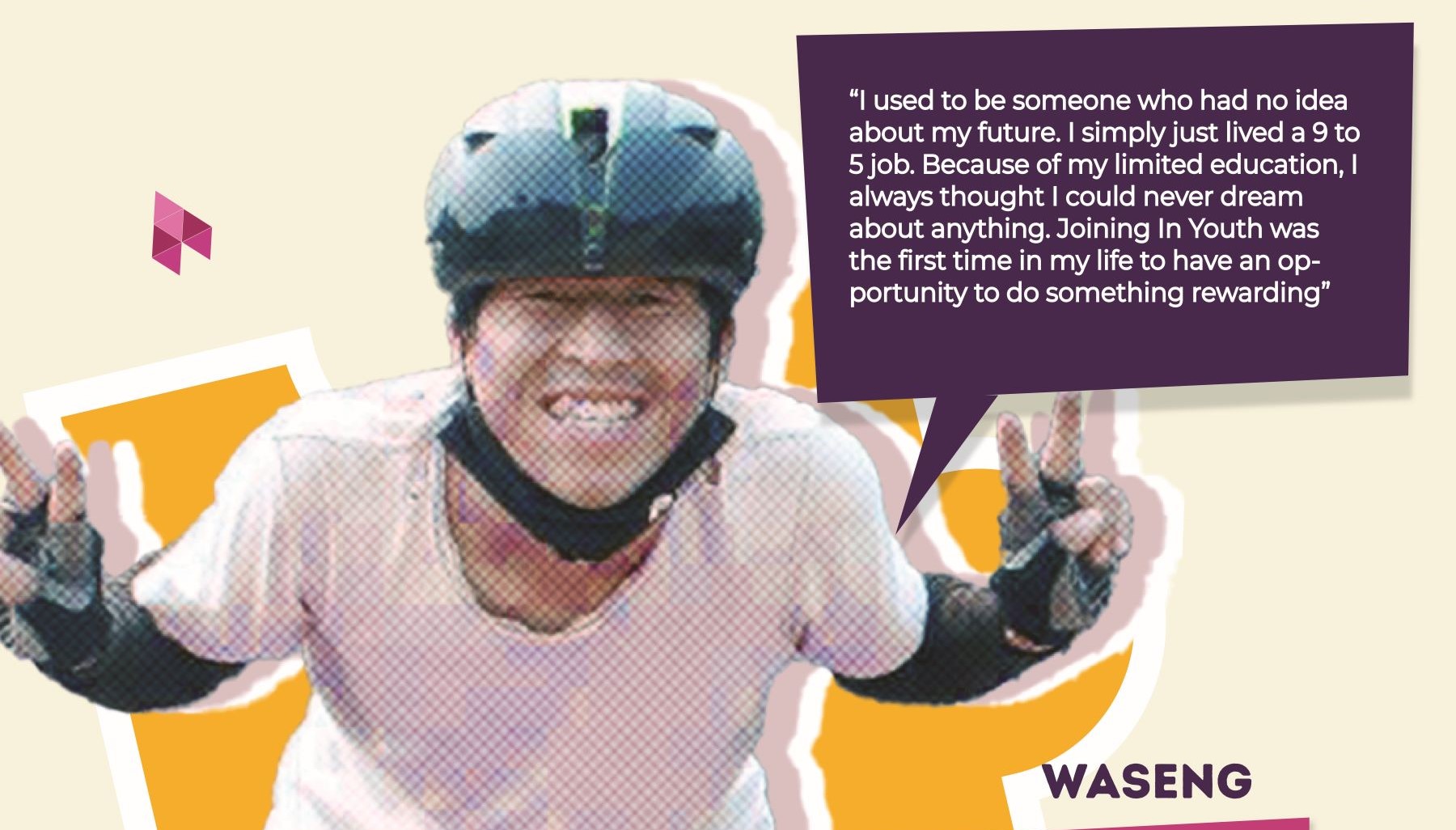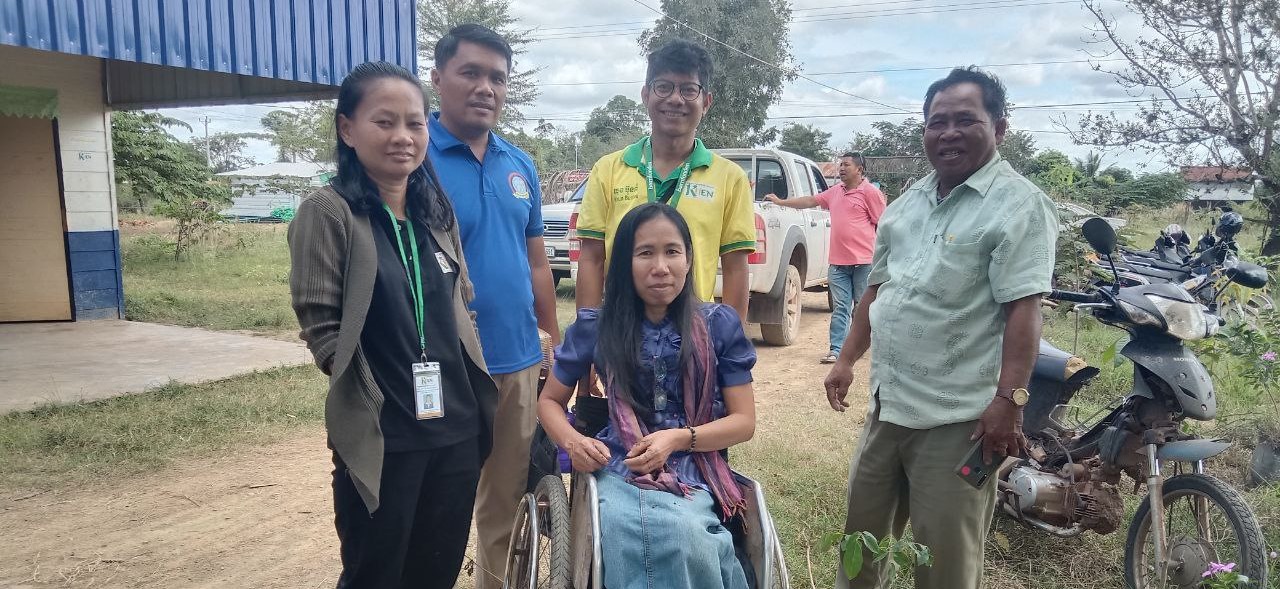I can’t be depressed, I am African!
Mental health and developmental disabilities within Voice in Africa
By Marinke van Riet, Global Programme Manager Voice
Recently I was watching an episode of one of my favourite comedians Trevor Noah, a South African who has made it in the United States. As part of his daily Tonight Show, he has informal chats with the audience, called Between the scenes. On this particular night, Oprah Winfrey was his special guest and she invited the audience to ask questions. An African-American woman stood up and explained that in her community there was a lot of trauma and mental health issues because of hardship, conflict, and poverty. However, when she wanted to broach the topic among family and friends they would simply deny at all costs. Was Oprah familiar with this and could she offer a solution?
Oprah responded by sharing a story about a young woman who attended her all girls’ school in South Africa. She showed all the signs of mental health issues, but denied vehemently by saying: I can’t be depressed, I am African. And the solution offered by Oprah? Mental health should be so normalised that not having any issues becomes the exception, rather than the rule.
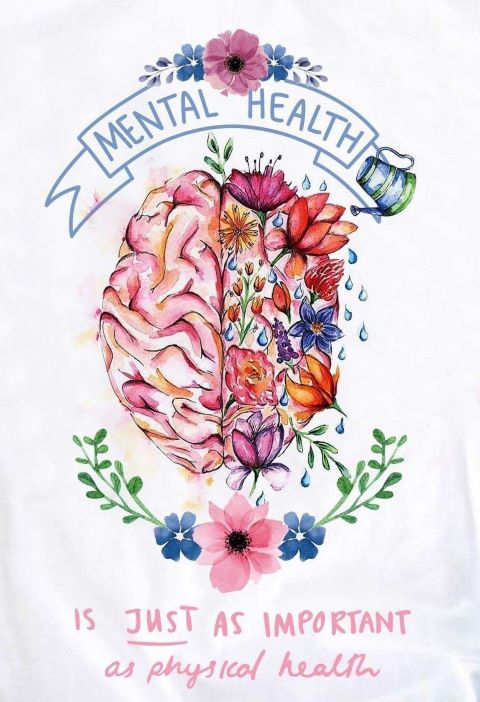
Is it indeed such a shame to have a mental health issue in Africa? And what about a developmental or psycho-social disability? Important questions to explore especially within the context of Voice. As part of the five rightsholder groups, we support people with disabilities. What has been interesting to see is that as part of the first round of Influencing Calls for Proposals in 2017, national networks of people with disabilities applied. For example, FEMAPH in Mali or NUDIPU in Uganda were selected to do important national level advocacy work for inclusion of people with disabilities. However, we also wanted to make sure that more of the specialised or “neglected” disabilities were offered a voice. And, slowly but surely we are growing our portfolio in mental health and developmental disabilities in Africa. Below we offer a small glimpse.
In Mali cultural enterprise Agoratoire works with youth with developmental disabilities such as Syndrome of Down and Cerebral Palsy. Taking a non-medical approach, they use art, music, dance and theatre instead to promote inclusion. Their Festivals for Slam and Humour have become central stages to hear the voices of people with different intellectual abilities. Recently Agoratoire celebrated World Down Syndrome Day to showcase the potential of the community they work with.
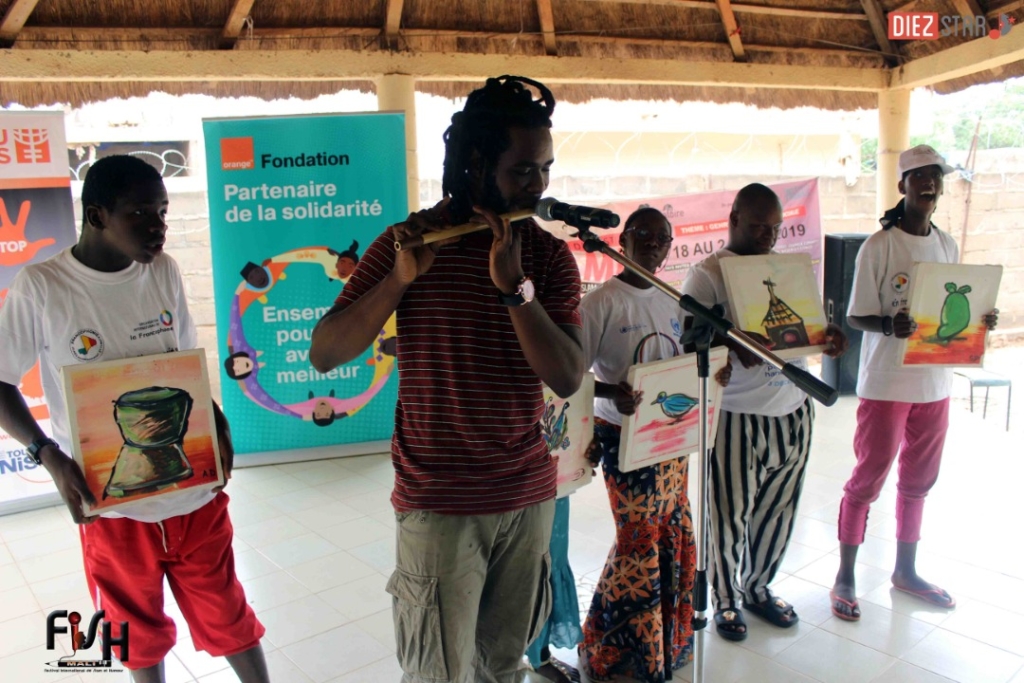
In Nigeria the Ike Foundation of Autism is standing up for the rights of parents and caregivers of kids with autism. The Capacity Building for Parents and Caregivers of kids with autism is a special programme designed to increase understanding and acceptance of persons living with autism; increase early childhood screening and intervention, raise autism awareness, and ensure access to reliable information and services for children with autism. It is a practical training programme to foster the social and communication skills of parents and caregivers providing services to children with autism and other developmental challenges. Also targeted at training capacity building for special needs teachers to effectively impart knowledge to children with autism and other developmental disabilities and make them available to access knowledge.
Step by Step Learning Centre in Tanzania has a similar story when the founder Margaret Kenyi struggled with education for her daughter with autism. After attending the umpteenth school, Margaret makes a big decision to do it herself, setting up the Step by Step Learning Centre. With a Voice empowerment grant the Centre uses special education in order to meet the special needs of students with Learning Disabilities and other special needs ranging from slow learners, Down syndrome, cerebral palsy, and autism. The theme of Step by Step Learning Centre is ability, not disability. The uniqueness of SSLC, is in the Job Training Activities (JTA) for the students who are at the centre. For the inclusive May Day campaign, the centre explored a central question among their students What do you like about your job? .
Mental Health in western Kenya is the central question for the Tinada Youth Organisation. The project Campaigning for Mental Health targets three counties in western Kenya namely Kakamega, Vihiga and Bungoma. It promotes full and equal enjoyment of all human rights and fundamental freedoms by all persons with mental disabilities. The project focuses especially to the right to access justice and quality healthcare services, by reducing stigma and discrimination and promotion of people’s well-being and respect for their inherent dignity.
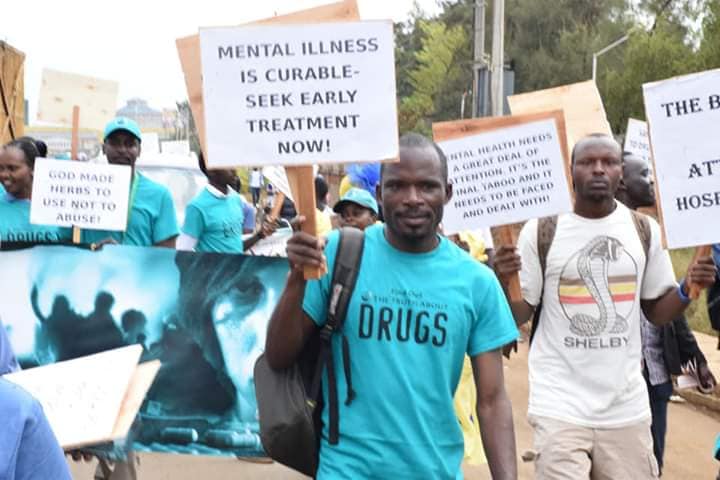
Finally, the project Disability Social Innovation Lab brings together a diverse team of experts from multiple sectors to co-design, prototype, test and document training and employment models for youths with intellectual and mental disabilities in Nairobi. Implemented by Cheshire Disability Services and Agency for Development and Disability in Africa, the project is prototyping, testing, documenting and learning how peer-to-peer support networks, dual employment and co-designed inclusive learning and working spaces can be applied to solve the training and employment dilemma facing the youth with intellectual and mental disabilities in Kenya. During the launch, Voice managed to interview a young woman with bipolar disorder, Noella, who is bipolar and a mother, Eva Kimani, who has a daughter who has the same condition. Their stories are captured in Defying the Odds
The above stories are just a glimpse of the impressive work the Voice grantees are doing advancing the rights and voices of people with mental and developmental disabilities. We will stand together with them until the following will be a reality: I am depressed, normal (or special) and African!
PS help us grow our portfolio in the above areas by applying to the many open Calls for Proposals!

